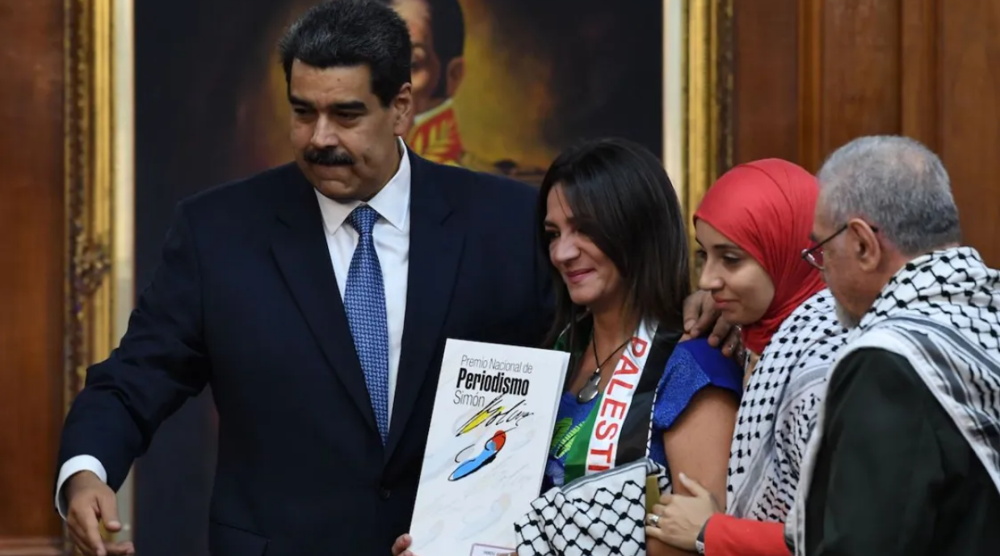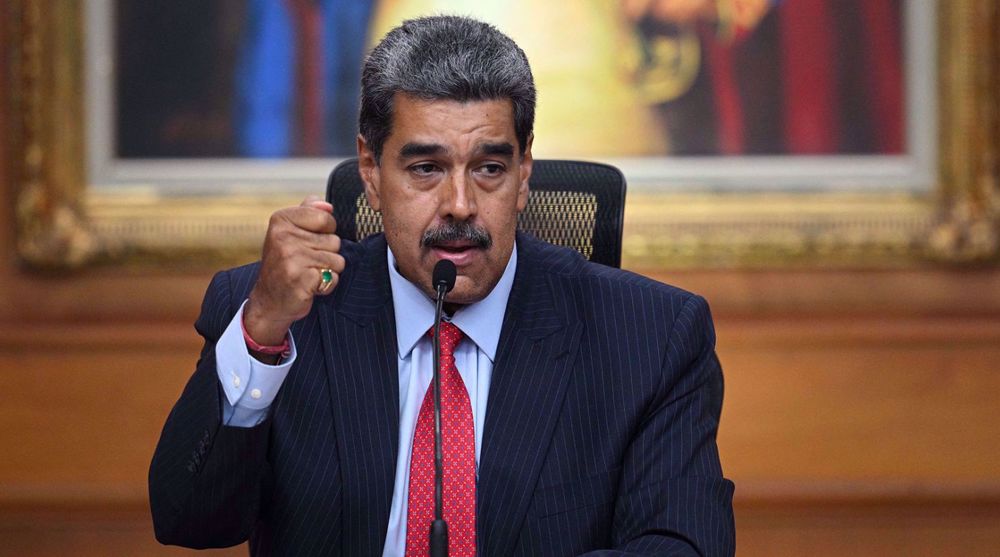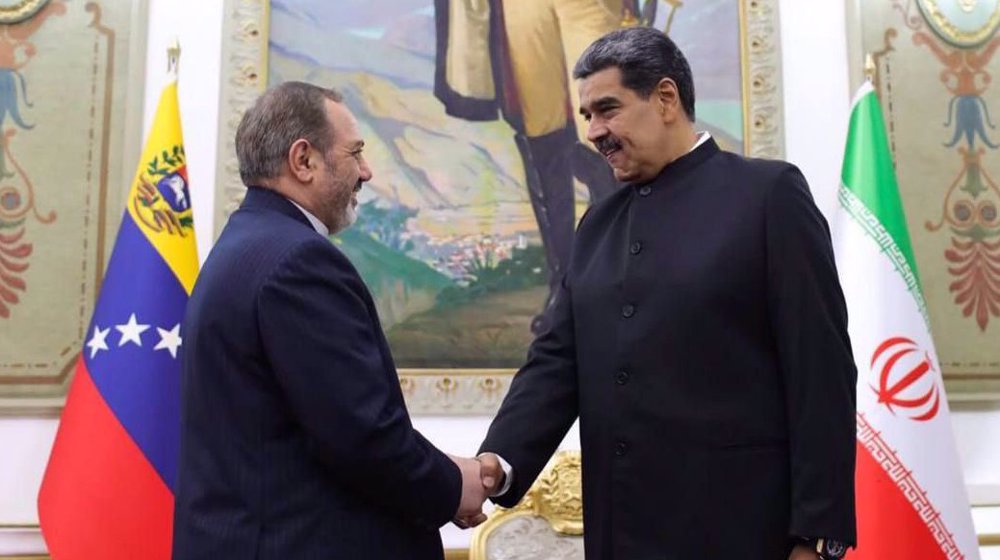Venezuela army declares loyalty to Maduro ahead of big opposition demo
Venezuela’s defense minister has rejected a call by the opposition to turn on President Nicolas Maduro, declaring the army’s loyalty to the leader as the country is bracing for a large protest rally against the government.
Vladimir Padrino Lopez said on Monday that the army “confirms its unconditional loyalty to the president” after the center-right opposition called on the military to defy Maduro.
The defense chief was speaking to thousands of members of the National Bolivarian Armed Forces outside the presidential palace in the capital, Caracas.
The opposition call came days before a mass demonstration against the embattled protest rally on April 19, in what it has vowed to be the “mother of all protests.”
Supporters of Maduro will also stage a counter-protest the same day, a national holiday that marks the start of Venezuela’s independence struggle in 1810.
Maduro has deployed Bolivarian forces to the streets to ensure the security of the planned rallies for and against the government.
Also addressing the crowed on Monday was Maduro, who thanked the army and the Bolivarian forces for their support, announcing a plan to increase the number of civilians involved in the Bolivarian force to 500,000 from the current 100,000.
Venezuela’s National Bolivarian Armed Forces are controlled by the president, who is the commander-in-chief. The national guard, made up of civilians, primarily focuses on internal security in addition to the army, the navy and the air force.
The force was created by late president Hugo Chavez, Maduro’s mentor, to help the army in defending his “Bolivarian revolution” from external and domestic attacks.

“From the first reveille (on Monday morning), from the first rooster crow, the Bolivarian National Armed Forces will be in the streets... saying, ‘Long live the Bolivarian revolution,’” Maduro said in a televised address on Sunday night.
He also urged the militia to be in “permanent training” and “permanent deployment” to defend Venezuela against “any imperialist aggression.”
Venezuela has been hit by violent demonstrations sparked by the Supreme Court’s ruling to annul the legislature.
Venezuela’s Supreme Court ruled that the National Assembly was in “contempt” and annulled its legislative powers. However, it reversed its ruling on April 1 after Maduro asked the judicial body to review the decision.
Public discontent with the government has been high as a result of the economic woes gripping the once-booming Latin American economy.
Acute shortages of food and medicine have forced hundreds of thousands of people to march across the border into neighboring Colombia to buy necessities in recent months. This is while Venezuela has the world’s largest oil reserves.
Tensions have been running high between the opposition and the government since the 2015 elections, when the opposition gained control of the parliament.
The opposition blames Maduro’s socialist government for the country’s economic troubles, while the leftist government blames the Western-backed opposition forces for inciting political unrest with the help of the United States.
‘All wars have rules. All of those rules have been broken’ by Israel
VIDEO | Report flags India’s violation of rights of Rohingya detainees
Turkey's foreign minister meets Syria's de facto leader in Damascus
'Next to impossible' to rescue patients from Gaza's Kamal Adwan Hospital: Director
VIDEO | Vietnam current prosperity
Report blames gasoil exports for shortage at Iranian power plants
VIDEO | Hind Rajab Foundation names Israeli war criminals vacationing after Gaza genocide
VIDEO | Australians rally for Gaza ahead of Christmas festivities














 This makes it easy to access the Press TV website
This makes it easy to access the Press TV website